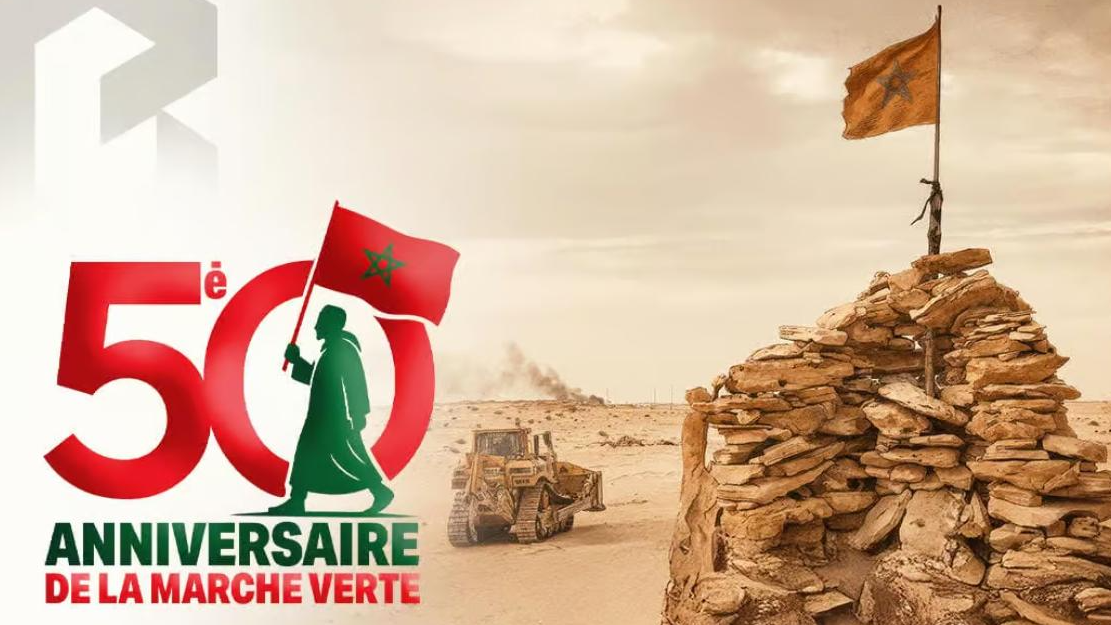Fifty Years After the Green March: Morocco Upholds National Unity and Diplomatic Victory in the Sahara

The year 2025 carries exceptional significance for Morocco, as the nation celebrates the fiftieth anniversary of the glorious Green March, a foundational moment in its modern history. In November 1975, hundreds of thousands of Moroccans, holding aloft the national flag and the Quran, responded to the call of His Late Majesty King Hassan II to peacefully liberate the Saharan provinces. Fifty years later, that spirit of unity, courage, and faith in the homeland remains alive, inspiring new generations and guiding the Kingdom’s ongoing march toward prosperity and stability.
This commemoration takes on a historic new dimension: on October 31, 2025, the United Nations Security Council officially recognized that the Autonomy Plan proposed by Morocco represents “the most realistic and achievable solution” to the regional dispute over the Sahara. With this decision, the international community endorsed a position that Morocco has upheld for nearly two decades — one based on wisdom, dialogue, and the pursuit of a lasting compromise.
The resolution, adopted with eleven votes in favor and three abstentions, reaffirmed the credibility of Morocco’s approach. The United States hailed “momentum toward peace and regional stability,” while France praised “a collective success and an innovative approach” to achieving a sustainable settlement. This broad consensus marks recognition of the seriousness and consistency of Moroccan diplomacy, guided by the far-sighted vision of His Majesty King Mohammed VI. Across the Kingdom, the decision was met with immense national pride, reviving the spirit of the Green March and reaffirming the Moroccan people’s steadfast attachment to the integrity of their territory.
Under the leadership of the Monarch, Morocco’s foreign policy has emerged as a model of balance and coherence. Through dialogue, mutual respect, and South-South cooperation, the Kingdom has rallied a growing number of states to the legitimacy of its national cause. Many African, Arab, Asian, and Latin American countries have withdrawn recognition of the so-called “rasd” and now openly support the Autonomy Plan as the only serious and credible framework for negotiation.
This diplomatic breakthrough has gone hand in hand with a profound transformation in the southern provinces. The region is witnessing unprecedented growth through major investments in infrastructure, education, healthcare, and renewable energy. Landmark projects such as the Atlantic port of Dakhla, industrial zones, and regional universities reflect this momentum of modernization and integration. They embody the King’s vision of making the Sahara a strategic and economic hub at the continental level.
Today, the Green March continues in a new form — one of human development, shared prosperity, and international influence. It is no longer a march across the desert, but a march through the paths of progress, knowledge, and cooperation. Every school built, every road paved, and every business established in the Moroccan Sahara stands as a living continuation of that national epic.
By celebrating this historic fiftieth anniversary, Morocco looks not only to its glorious past, but also to a future filled with promise. The unity of the Kingdom, reinforced by international recognition and the development of the Sahara, symbolizes the triumph of law, peace, and perseverance. Fifty years after the Green March, Morocco celebrates not an end, but a rebirth — that of a people faithful to their history and resolutely oriented toward the future.